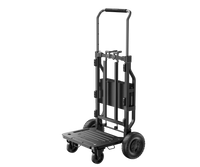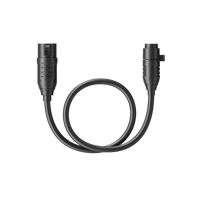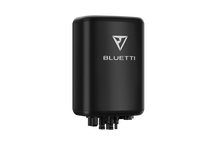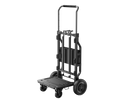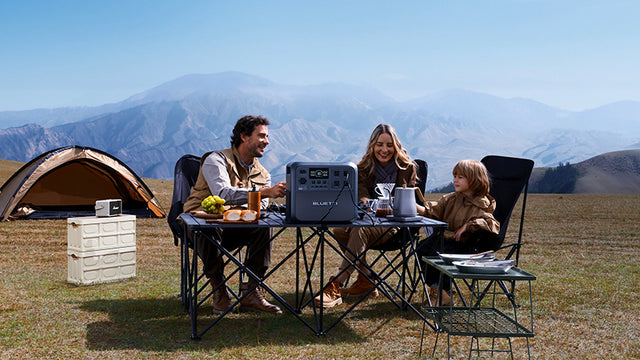Your cart is empty
Shop our productsAn interesting poll by Bosch Home Appliances found that, on average, an American adult spends about 67 minutes in their kitchen.
That is the equivalent of over 400 hours a year.
Interestingly, the poll also found that 59% of applicants struggled to make specific family recipes just "right", citing the reason as they do not have access to the same kitchen tools and appliances their forebears had.
Now, to make matters even trickier, modern-day Americans also have to compete with unscheduled power outages, bringing the entire cooking operation to a halt.
In fact, researchers have reported that power outages in the last 10 years have increased by 64% in comparison to the last decade.
In this article we focus on how you can continue cooking in the kitchen during a power outage, using the help of a solar generator.
Can A Solar Generator Power Kitchen Appliances?
When people think "generator" the first thing that comes to mind is likely "gas generator". This is no surprise, after all, this technology has been around since the 1860s.
That said, it would be impractical to power any kitchen appliance with a gas generator. In fact, it would impractical to power any appliance indoors.
That is where solar generators come in. They are able to do the same thing as a gas-powered generators, minus the noise and fumes.
Solar generators use stored DC electricity (usually captured by the sun) to power any electrical appliances.
So, in other words, yes a solar generator can power any kitchen appliance that utilizes electricity to operate.
How does a solar generator work?
A solar generator is comprised of 4 main components:
- Battery
- Inverter
- Charge Controller
- Solar panels
Battery: A solar generator needs to store the energy it collects from the sun in order for you to use it at a later stage. The battery functions as a storage unit.
Inverter: This component converts the low direct current (DC) from the battery to alternating current (AC), which can be used to power your everyday household items.
Charge controller: The main purpose of a charge controller is to protect and promote the durability of the battery. Charge controllers are crucial in making a solar generator work as they balance the power dynamic between the solar panels and batteries.
Solar panels: These are essentially not part of the solar generator itself as they are attachable. However, this component is responsible in collecting the irradiation for the sun and transforming it into DC electricity.
Which Kitchen Appliances Can A Solar Generator Power?
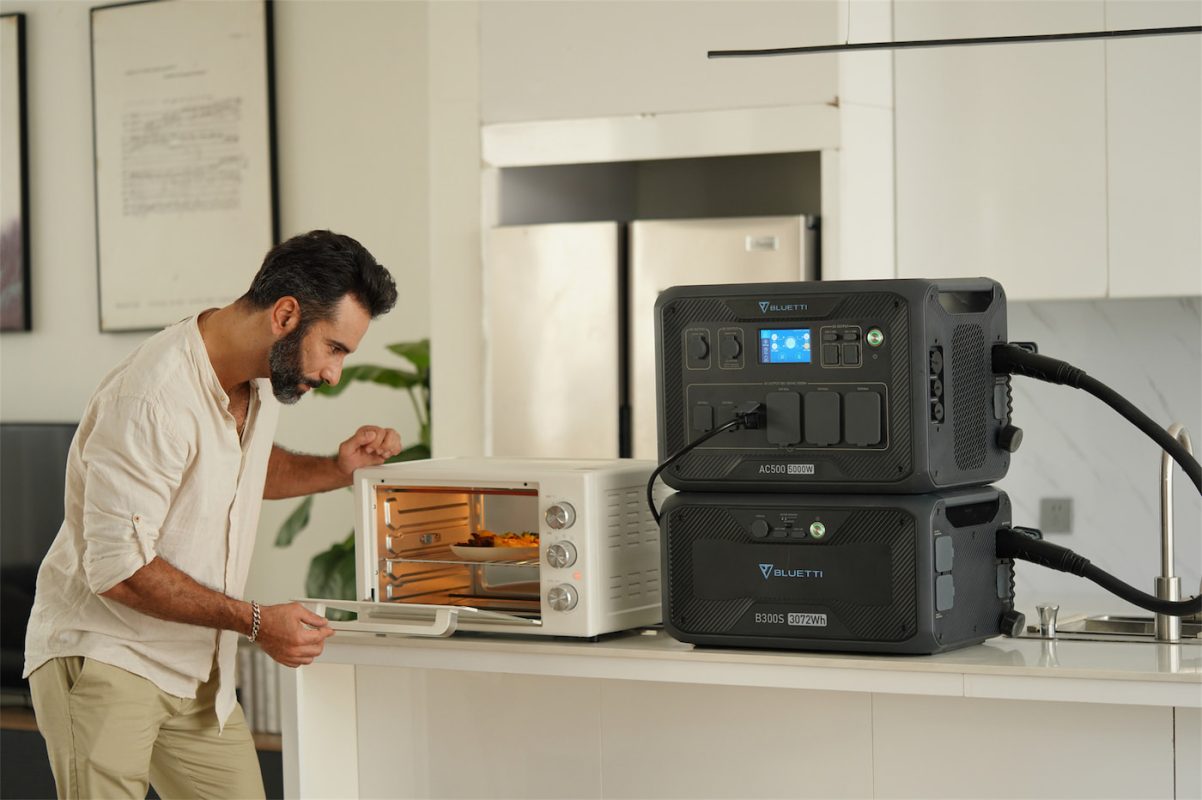
Now, this is a more interesting question, as which kitchen appliances you are able to power is dependent on a few important factors.
These factors include the wattage rating of the appliances you want to power and the wattage rating of your solar generator.
Remember, solar generators store DC electricity, and most home appliances require AC electricity.
In order for your solar generator to power an AC appliance, it uses an inverter to transform that stored DC electricity into AC electricity.
Inverters are rated by their wattage. Meaning not all inverters are made equal. Some are capable of powering appliances with higher wattage rating and others with lower wattage ratings.
For example, a solar generator rated at 1000 watts means that the inverter inside can handle an appliance that is also rated at 1000 watts or below.
Generally, though, we recommend sizing your solar generator (wattage rating) above your actual needs as there is also the appliance's surge power rating to take into consideration. That is the extra power needed to get an appliance going in the beginning.
With this being said, a solar generator can power any appliance as long as the wattage ratings coincide.
To summarise, a solar generator can power the following kitchen appliances:
- Blender:
- Microwave:
- Fridge/Freezer:
- Pressure Cooker:
- Toaster/Sandwich Maker:
- Electric cooker
- Juicer
- And many more.
How Long Can A Solar Generator Power Kitchen Appliances For?
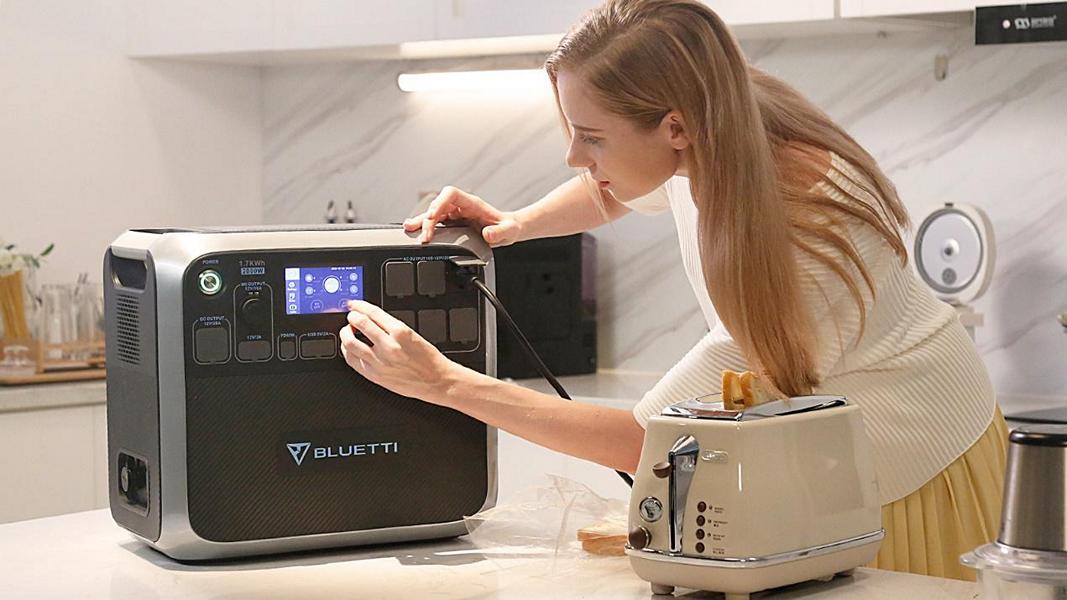
How long a solar generator powers your kitchen appliance for comes down to the battery capacity of your solar generator.
The higher the capacity the longer (in theory) it could power the same appliance for. We say same, as a solar generator with 2000 watt hours of capacity could power a fan for X amount of time. But an appliance that consumes more electricity than a fan (think a toaster) would be powered for less amount of time, even using a solar generator with the same battery capacity.
However, if you were to use a solar generator with 3000 watt hours of capacity, it would, of course, power a toaster for longer than the 2000 watt hour solar generator.
It simply has more stored energy t its disposal.
The formula to calculate usage time is:
Running time = Battery capacity × DoD × η ÷ Device rated power
(DoD refers to Depth of Discharge, and η is local inverter efficiency.)
For the AC200P, both DoD and η are 90%. If you run a 1,000 watt microwave oven with it, the running time will be:
2,000Wh × 90% × 90% ÷ 1,000W ≈ 1.6hrs
(Please note: the above formula is NOT suitable for inductive loads with compressors, like refrigerators, air conditioners, etc.)
Final Thoughts
We hope this article better explains whether or not a solar generator can power a kitchen appliance. It is pretty easy to see, that as long as your kitchen appliance requires electricity to operate a solar generator can get the job done.
All you will need to do is ensure that your generator's wattage rating and energy capacity meet your requirements.
Shop products from this article
You May Also Like

What Does a 30% Federal Solar Tax Credit Mean and How to Apply?
Governments around the world are offering programs that encourage homeowners to switch to solar energy. Among the most notable programs is the 30% Federal Solar Tax Credit. It reduces your...

Deadly Flooding Devastates U.S. South and Midwest — What You Need to Know





































































